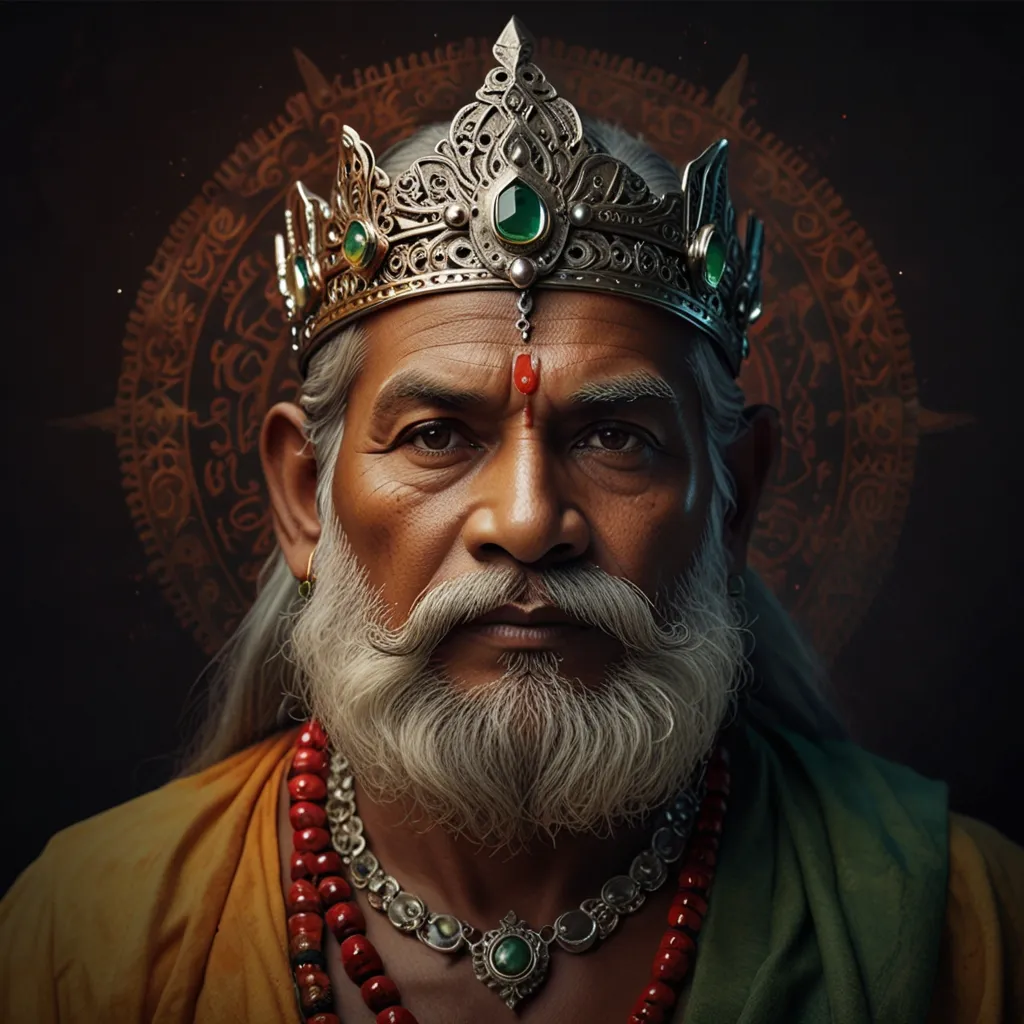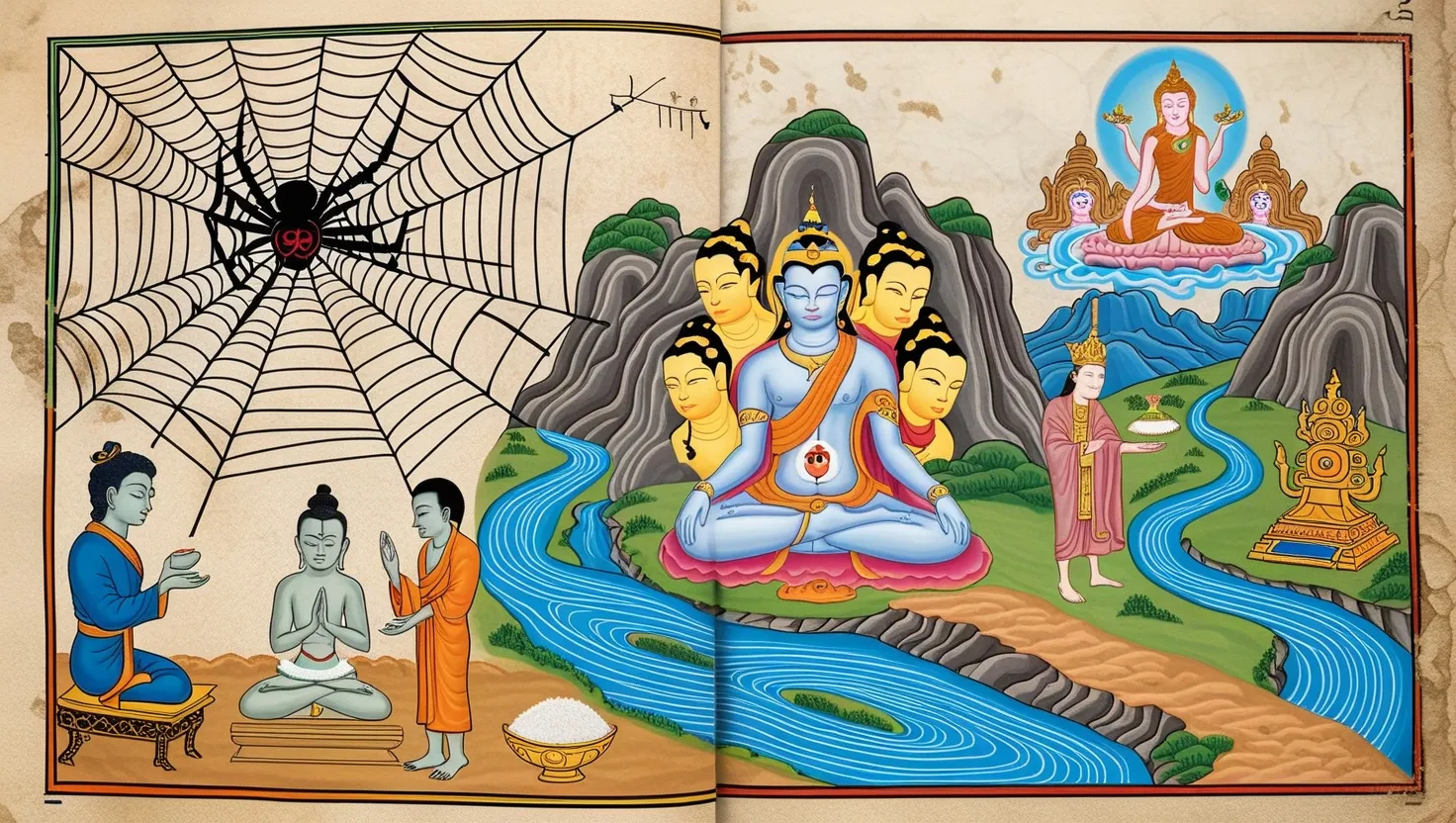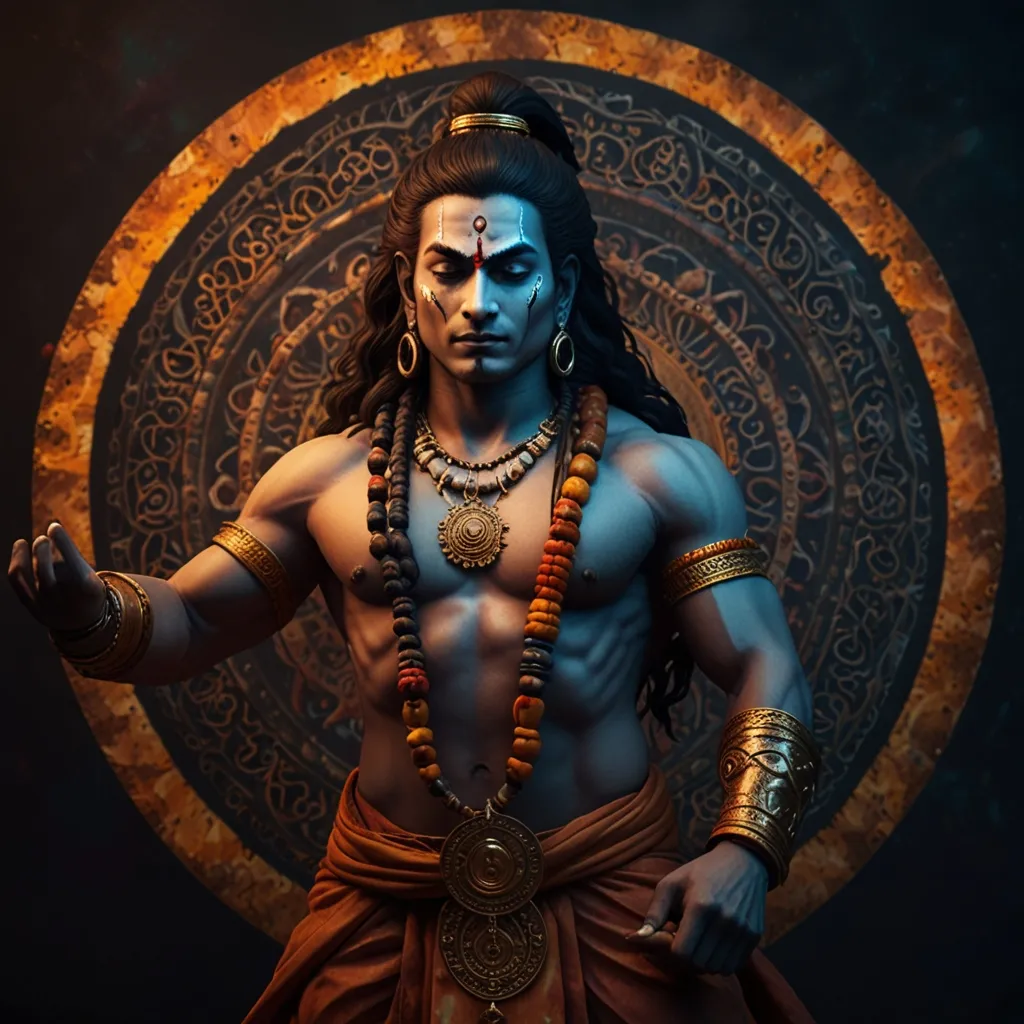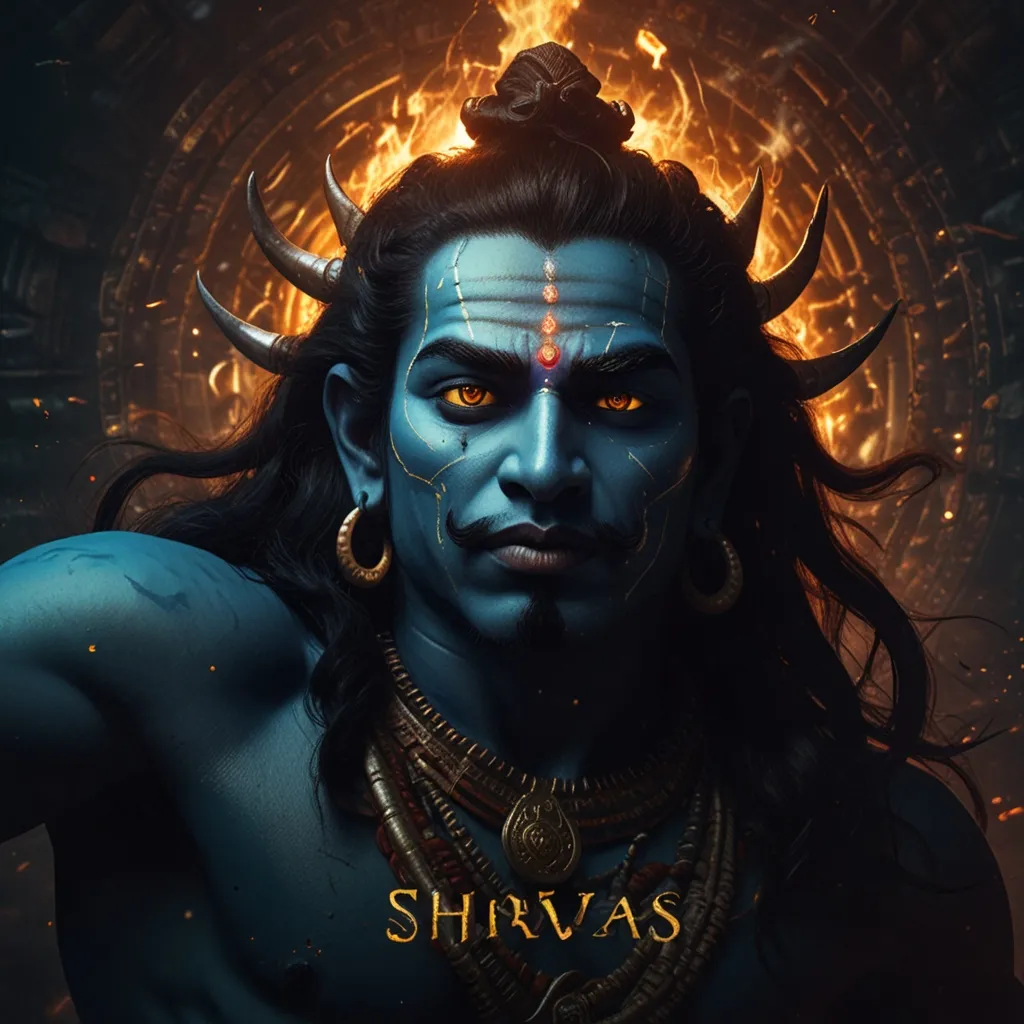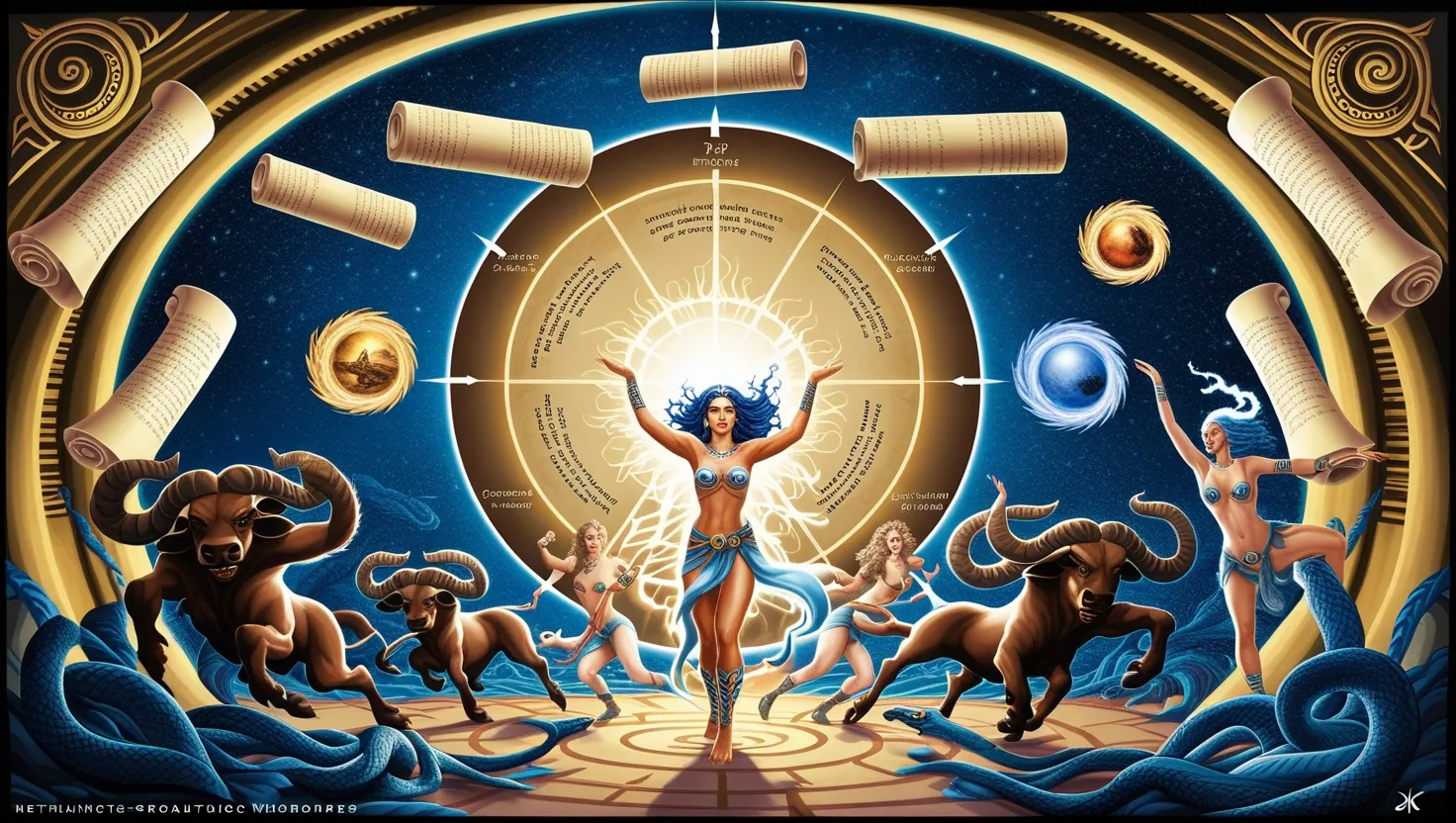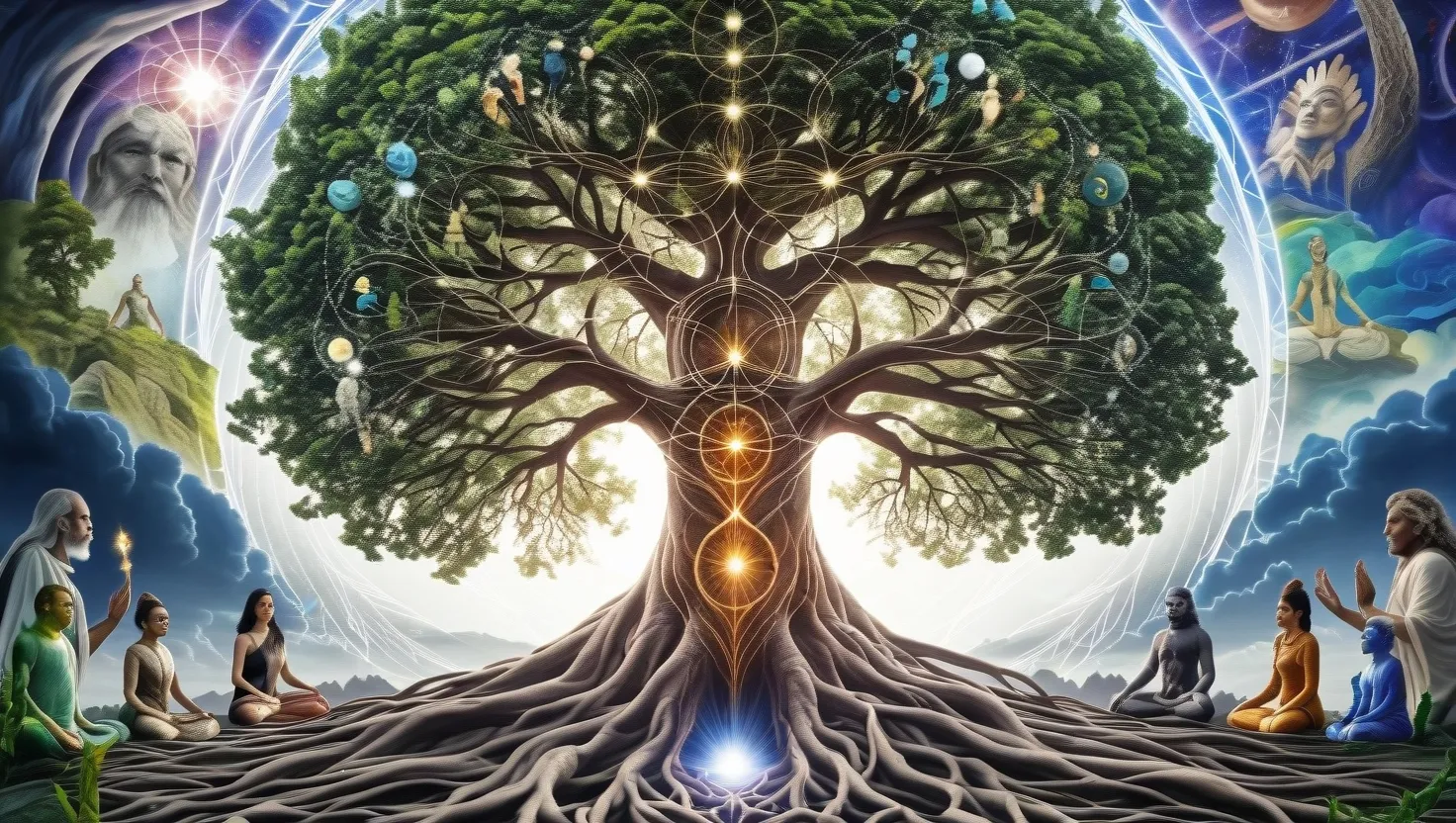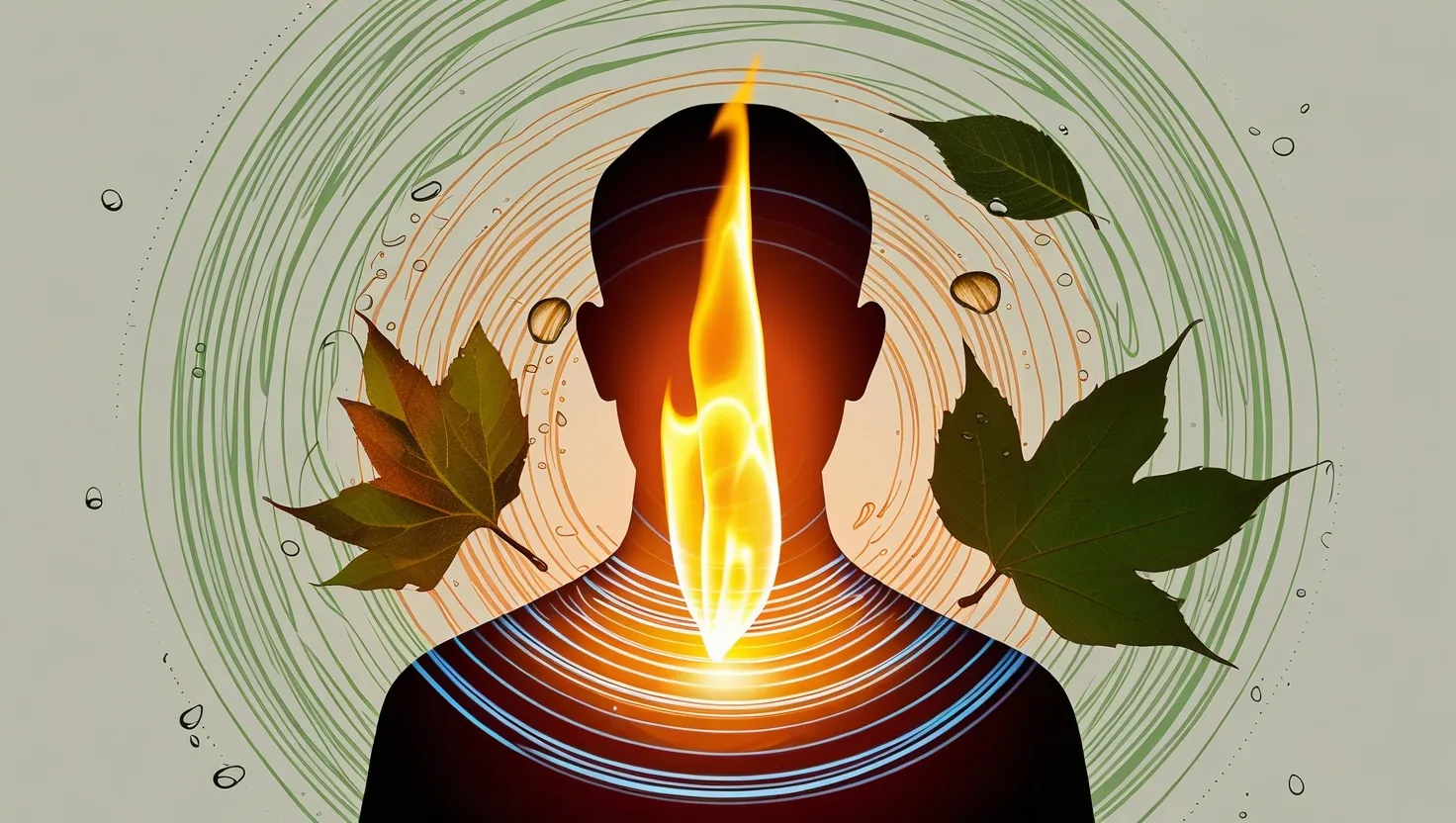Hindu mythology is filled with tales of incredible beings who have had a lasting impact on its rich narrative. One of the standout figures in this vast mythological realm is Sage Dadhichi. His story is wrapped in dedication, wisdom, and sacrifice. It’s a saga of the eternal issues between good and evil, selfishness and selflessness, and the ultimate victory of righteousness over the forces of darkness.
Dadhichi hailed from a lineage that was deeply embedded in the realms of ancient wisdom and spiritual insight. His parents, Atharvan and Chitti, were notable figures. Atharvan, particularly, was the mind behind the Atharvaveda, which is one of the four cornerstone texts of Hinduism. This heritage naturally provided Dadhichi with a profound understanding of the cosmos and the intricate details of human nature.
Known as a sage, Dadhichi excelled in Brahmavidya, an ancient art that delved into the universe’s mysteries. His prowess was such that it even threatened Indra, the king of the devas. Afraid that Dadhichi’s wisdom might overshadow his authority, Indra aimed to get rid of him. But, Dadhichi’s commitment to the greater good and his unwavering dedication to his craft made him an indomitable force in the face of adversity.
A significant episode in Dadhichi’s life involves his interaction with the Ashwini Kumars, the twin deities with healing powers. Despite some sages objecting, Dadhichi imparted his knowledge to the Ashwini Kumars. This act of sharing wisdom highlighted his selflessness but led to severe consequences, as Indra had him beheaded. Fortunately, Shiva intervened and resurrected Dadhichi, symbolizing the transcendence of mortal limitations.
The most famous act linked to Dadhichi is his ultimate sacrifice, which has cemented his name in Hindu lore. The devas were struggling against the asura Vritra, who had become almost unbeatable due to a boon. Desperate, the devas turned to Dadhichi. Understanding the critical situation, Dadhichi decided to sacrifice his life so that his bones could be used to forge the Vajrayudha, a powerful weapon capable of defeating formidable foes.
The creation of Vajrayudha itself is a tale worth noting. With Vishwakarma’s assistance, Indra formed Dadhichi’s bones into a weapon that gleamed like a diamond and thundered with power. This weapon proved instrumental in Vritra’s defeat, reinstating cosmic balance and safeguarding the devas.
But Dadhichi’s story isn’t just about his sacrifice. His legacy continued through his son, Pippalada, a rishi who gained fame on his own. Pippalada is known for authoring the Praśna Upanishad, a text exploring the mysteries of the universe and the nature of ultimate reality.
Apart from his role in defeating Vritra, Dadhichi is also lauded for standing up against injustice. During Daksha’s Yagna, a grand ritual excluding Lord Shiva, Dadhichi identified the gross injustice and opted out of the ritual. This act of resistance showcased his commitment to righteousness and his unwillingness to partake in acts against dharma.
Dadhichi’s confrontation with King Kṣuva is another intriguing chapter. As a devotee of Vishnu, King Kṣuva had views that irked Dadhichi. In a fit of rage, the sage struck the king, which led to his limbs being disintegrated by the Vajra. Yet, with Shiva’s intervention and his yogic prowess, Dadhichi was restored to his original form. This episode highlighted the dominance of wisdom over weaponry, a recurring theme in Dadhichi’s life.
In popular depictions, Dadhichi is often associated with an ashram he supposedly established in Misrikh, near Lucknow in Uttar Pradesh. This ashram became a hub for spiritual learning, attracting seekers from far and wide.
Sage Dadhichi’s story is a powerful reminder of selflessness, wisdom, and an unwavering commitment to righteousness. His life and deeds inspire generations, embodying hope and showcasing the transformative power of sacrifice and devotion. Dadhichi remains a shining example of living a life dedicated to the greater good, transcending the limits of time and mortality.
